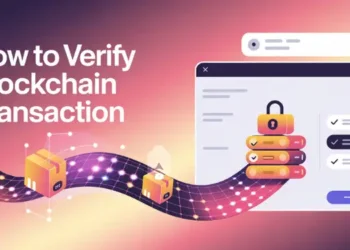Exploring blockchain certification for beginners opens doors to a fast-growing tech career. This technology was introduced in 2008. It has made the web more secure and created new jobs.
Blockchain now powers finance and supply chains. This makes skilled professionals very valuable.
Ever wonder why blockchain skills get high salaries? A surprising 68% of crypto pros started without coding. They learned through structured courses and certifications.
“The right certification teaches you to think differently about digital trust,” says a top blockchain teacher. I remember my first workshop in 2016. People were confused by concepts like distributed ledgers.
Today, those concepts are career launchpads for thousands. Starting your journey means finding the right blockchain courses for beginners. The best ones balance tech depth with easy learning.
Quick hits:
- University certificates offer academic credibility
- Free courses provide low-risk entry
- Bootcamps focus on practical skills
- Business programs emphasize real-world applications
- Community learning accelerates professional networking
Value of Blockchain Certification for Beginners
Blockchain certification is more than just a piece of paper. It’s a way for newbies to get into a very profitable field. I tell beginners about the benefits of blockchain education. It helps them now and in the future.
This field is growing fast. It needs more skilled people than it has. Certification shows you know your stuff. It opens doors to jobs that are hard to get without experience.
LinkedIn’s 2018 Emerging Jobs Report ranked “Blockchain Developer” the #1 fastest-growing role, recording a 33× year-over-year hiring surge—clear proof that formal credentials translate into immediate market demand. Ref.: “LinkedIn Economic Graph Team. (2018). LinkedIn 2018 Emerging Jobs Report. LinkedIn.” [!]
Learning through certification builds your confidence. It makes you feel ready to talk about tech. You learn new words and ideas that help you join in on tech talks.
Career Advancement and Salary
People with blockchain certifications make a lot of money. Software developers in blockchain make about $159,100 a year. This is one of the highest salaries in software development.
Salaries go up as you get more experience:
| Blockchain Role | Experience Level | Median Annual Salary | Growth |
|---|---|---|---|
| Solutions Architect | Entry to Mid-Level | $90,000 | High |
| Blockchain Developer | Mid-Level | $159,100 | Very High |
| Smart Contract Developer | Specialized | $120,000-$180,000 | Very High |
| Principal Architect | Senior Level | $163,460 | Excellent |
Students can switch to blockchain jobs in 3-6 months. This is because certification shows they know their stuff. Employers want people with this knowledge.
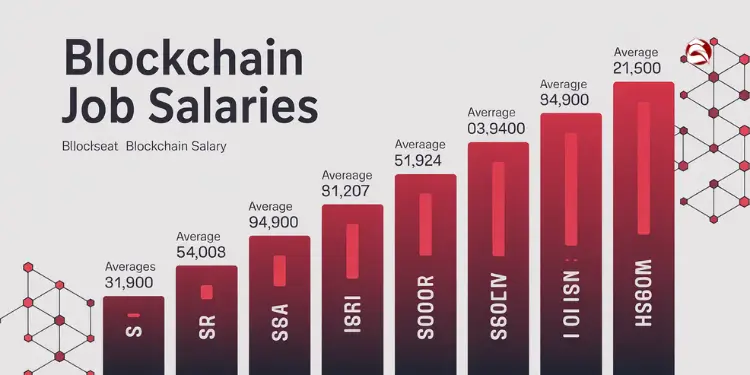
Glassdoor’s May 2025 figures peg the median U.S. blockchain-developer salary at $159,179 per year—roughly 20-30 % above the wider software-developer median. Leveraging certification plus demonstrable project work positions candidates for the upper quartile of this range. Ref.: “Glassdoor. (2025). Salary: Blockchain Developer in United States. Glassdoor.” [!]
Getting certified opens doors to new projects. You work on projects that change industries like finance and healthcare. This is a chance to grow your career in new ways.
If you’re thinking about switching careers, start with a structured plan. Use your certification to get practical experience.
Choose a certification based on your skills. Programmers might want developer certifications. Business people might prefer enterprise blockchain certifications.
“The most successful blockchain professionals combine technical certification with domain expertise in a specific industry. This hybrid skill set commands the highest salaries and offers the greatest job security.”
Before getting certified, know your skills and goals. This helps pick the right certification for you. The right one can boost your career, but it must fit your skills and interests.
Criteria for Selecting Reputable Programs
Blockchain training has grown a lot, making it hard for beginners to find good courses. There are many blockchain certification courses out there. It’s important to know how to pick the right ones.
Look at who offers the course. Good blockchain training comes from well-known tech leaders like IBM. Also, look for courses from recognized blockchain councils or schools that work with experts.
Check if the course covers both theory and practice. Good courses teach you about cryptography, how blockchains work, and how to use them. They also include hands-on learning and real-world examples.
Make sure the course tests your skills, not just your memory. I once paid $900 for a course that only tested if I could remember things. True learning means showing you can do things.
Look for courses that have:
- Proctored exams to check your identity and make sure you’re not cheating
- Hands-on tests that are like real-world problems
- Projects where you apply what you’ve learned
- Tests that show you can do things, not just know things
Ask for sample exam questions before you sign up. This helps you see if the course is right for you. Good providers usually give you these questions for free.
Accreditation Exam Format and Support
How a course tests you matters a lot. Good courses have different kinds of tests, not just one type.
Good tests include:
- Timed multiple-choice questions to check your basic knowledge
- Coding challenges to show you can do things
- Questions that make you think critically
- Simulations that mimic real-world blockchain use
Support is also key. Look at what a course offers when you’re learning. Good courses have lots of support through different ways.
Good support includes:
- Direct help from teachers
- Places to talk with other students
- Help with technical issues
- Updates on new blockchain technology
Talk to someone who has already taken the course. They can tell you if the course is worth it. They know things that the course’s marketing doesn’t say.
Good courses also have a community of graduates. This community is great for finding jobs and learning more. It’s very valuable, as blockchain technology keeps changing.
“The difference between a valuable blockchain certification and a worthless one isn’t just the content—it’s the rigor of assessment and quality of support that transforms information into applicable expertise.”
Getting a certification is just the start. The best courses help you keep learning as blockchain technology grows.
Top Entry Level Certifications Compared
There are many entry-level blockchain certifications. Each one is good for different learning styles and career goals. When I help newcomers choose their first blockchain credential, I suggest comparing three programs. These programs offer a good start into blockchain technology.
Let’s look at how these top certifications compare. We’ll check their time commitment, technical depth, and how well-known they are in the industry. Knowing these differences helps you pick the best program for your career and learning style.
| Certification | Duration | Cost Range | Technical Level | Best For |
|---|---|---|---|---|
| Blockchain Council CBE | 8-14 weeks | $300-400 | Low-Medium | Broad conceptual understanding |
| IBM Blockchain Foundation | 30 hours | $500-600 | Medium-High | Developer-focused roles |
| Coursera Blockchain Basics | 3-4 months | $300-400 | Low | Complete beginners |
Certified Blockchain Expert Council Course
The Certified Blockchain Expert (CBE) program from Blockchain Council is great for beginners. It’s designed for those with little technical background. You’ll spend 8-12 hours a week for 8-14 weeks, which is doable even with a full-time job.
This certification has a balanced curriculum. It starts with the basics and then moves to practical applications. You’ll learn about blockchain architecture, cryptography, smart contracts, and security. You don’t need prior technical knowledge.
One great thing about this program is the one-year access to all materials and practice labs. This lets you go back to complex topics as you learn more. My students really like this when they’re learning about things like consensus mechanisms.
The CBE certification costs about $300-400. It’s a good value compared to more expensive options. It’s recognized in many industries, but it’s not as well-known as some vendor-specific certifications. The main drawback is that it focuses more on concepts than technical skills.
“For More Information: Blockchain step by step explained for beginners“
IBM Blockchain Foundation Developer Badge
IBM’s Blockchain Foundation Developer Badge is the top choice for vendor-backed blockchain certification courses. It’s focused on practical skills for professional environments. This program is different because it focuses on development skills.
The course takes about 30 hours to complete. It includes video lectures, labs, and a final project. What makes it stand out is its technical depth. You’ll work with real code and IBM’s Hyperledger Fabric platform.
The program starts with blockchain basics and moves to smart contracts, transaction mechanics, and network architecture. They also cover wallet security and key management in detail. These topics are often skipped in other programs but are very important for real-world use.
The digital badge format makes your certification easy to verify through IBM’s system. This adds credibility when you share it with employers. The cost is around $500-600, which is more than some options but worth it for development roles.
Keep in mind that this course is labeled as a foundation but assumes some programming knowledge. JavaScript familiarity is helpful. It’s highly respected in industries like finance and supply chain, where IBM has a strong presence.
IMPLEMENTATION CONSTRAINT:
IBM’s Blockchain Foundation Developer badge requires candidates to build a JavaScript client that queries Hyperledger Fabric—so newcomers without basic JS skills should budget 2-3 weeks of coding prep before attempting the graded labs. Ref.: “IBM Training. (2024). Badge: IBM Blockchain Foundation Developer. IBM.” [!]
“Explore More: Blockchain explained for beginners in plain English“
Coursera Blockchain Basics Professional Certificate
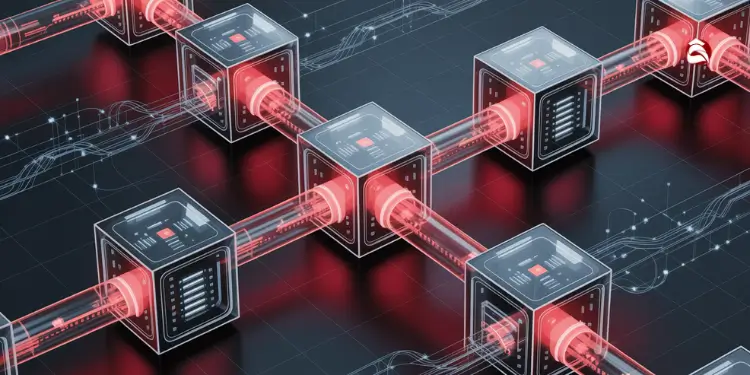
Coursera’s Blockchain Basics Professional Certificate is perfect for beginners. It focuses on understanding concepts, not just technical skills. The course takes 3-4 months, with 4-6 hours of study each week.
This program is special because it’s modular. You’ll go through courses on blockchain basics, cryptography, consensus mechanisms, and real-world applications. The learning format includes video lectures, readings, quizzes, and peer-reviewed assignments. These help you understand key concepts without feeling overwhelmed.
I recommend this path to students who are new to technology. The program explains complex ideas in simple ways. For example, they use a mailbox analogy to explain public/private key cryptography, which helps visual learners.
The cost is about $39-49 a month (or $300-400 total). It’s a good deal, with financial aid options available. The certification is recognized academically, but it might not be as well-known as vendor-specific certifications.
The hands-on parts are simpler than some other certifications. This makes it better for those who want to understand concepts, not just how to implement them. Try Coursera’s 7-day free trial to see if the content and teaching style fit your learning style.
“The right blockchain certification isn’t necessarily the most technical or expensive one – it’s the one that aligns with your current skills and future career goals. Start where you are, not where you think you should be.”
Industry Specific Blockchain Certification Tracks
Blockchain technology is growing in many fields. This means we need special training for each area. Students who pick the right blockchain course for their field do better in their careers.
Now, there are training programs for finance, supply chain, and healthcare. These courses add special skills for each field. They help people new to blockchain find jobs fast.
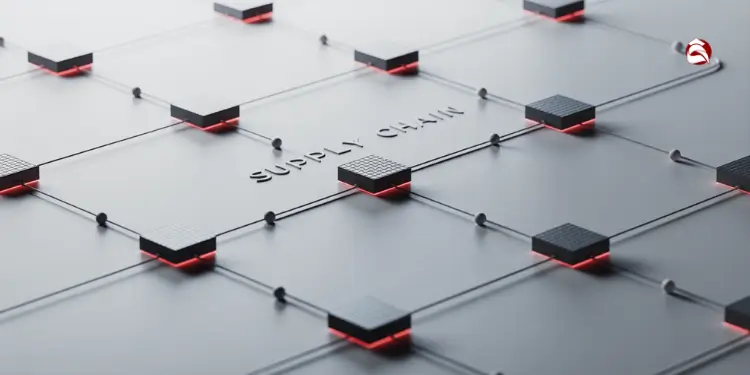
“Related Articles: How to get into blockchain entry tips for beginners“
Finance Supply Chain Healthcare Paths
In finance, blockchain courses teach about cryptocurrency and rules. The Certified Cryptocurrency Expert (CCE) and Financial Blockchain Professional (FBP) are great for those in fintech or banking.
These courses cover important topics like managing digital assets and following rules in finance. People with these certifications often work in exchanges, investment firms, or in finance departments.
Supply chain certifications focus on tracking goods and managing inventory. The Certified Supply Chain Blockchain Expert program is great for learning about tracking and smart contracts. It helps with supplier agreements.
These certifications are useful because they teach how to work with current systems. This makes certified people ready to work right away.
When I shifted from general IT to blockchain development, choosing a supply chain certification track aligned with my manufacturing background gave me an immediate advantage in job interviews. Employers valued my understanding of both technologies and industry processes.
Healthcare is a fast-growing area in blockchain. Courses here focus on keeping patient data safe and making sure medical records work together. The Certified Healthcare Blockchain Professional program is key for following HIPAA rules.
Healthcare blockchain experts create systems that keep patient info safe but also share it when needed. This skill is wanted as hospitals and clinics look into using blockchain for health records and trials.
| Industry Track | Key Certification | Core Focus Areas | Career Opportunities |
|---|---|---|---|
| Finance | Certified Cryptocurrency Expert (CCE) | Digital assets, trading platforms, regulatory compliance | Fintech startups, banking blockchain teams, exchange operations |
| Supply Chain | Certified Supply Chain Blockchain Expert | Traceability, smart contracts, ERP integration | Logistics firms, manufacturing, retail supply networks |
| Healthcare | Healthcare Blockchain Professional | Patient data security, HIPAA compliance, medical records | Hospitals, pharmaceutical companies, health tech startups |
When picking a blockchain certification, look at the course content. The best programs use real-world examples. They also use real data and problems.
Before choosing a track, talk to someone working in your field. These talks help you see if the course is right for the job market. LinkedIn groups and blockchain meetups are good places to find these people.
Most blockchain certifications need some basic knowledge first. If you’re new, start with a basic course. This way, you’ll understand the special parts of your field better.
Preparing for Exams and Continuing Education
Learning blockchain is more than just taking courses. It takes hard work and keeping up with new skills. Over eight years, I’ve seen many students succeed. They don’t just memorize; they learn in a way that helps them long after the exam.
The journey to certification has three parts: getting ready, taking the exam, and learning more. Each part needs its own plan and tools to make the most of your learning. Let’s look at how to do well in each part.
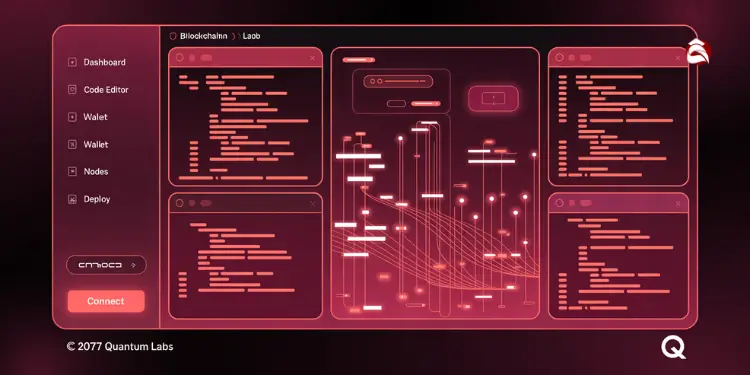
Effective Study Schedules and Resources
First, make a study plan that fits your life. Most beginner blockchain certifications take 8-12 weeks to prepare for. Your plan should match how you learn best and your other commitments.
After coaching hundreds of certification candidates, I’ve found that consistency trumps intensity every time. Studying for 30 minutes daily yields better results than cramming for 5 hours once a week.
I suggest the 3-2-1 method for beginners:
- Three 30-minute study sessions on weekdays on theory
- Two 1-hour blocks on weekends for practice questions
- One 2-hour practical lab weekly for hands-on experience
This schedule helps you avoid burnout and keep moving forward. Use a calendar or app to track your progress and see patterns in your learning.
Use free resources to get different views on hard topics. Different explanations can help make tricky ideas clearer.
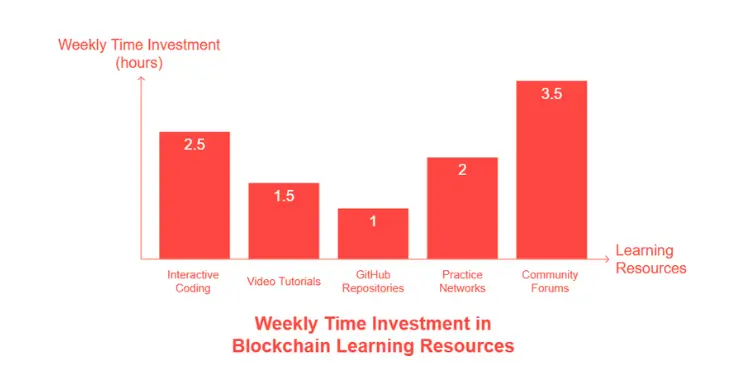
| Resource Type | Recommended Options | Best For | Time Investment |
|---|---|---|---|
| Interactive Coding | CryptoZombies, Remix IDE | Smart contract basics | 2-3 hours weekly |
| Video Tutorials | Blockchain at Berkeley, MIT OpenCourseWare | Visual learners | 1-2 hours weekly |
| GitHub Repositories | Ethereum samples, Hyperledger tutorials | Code examples | 1 hour weekly |
| Practice Networks | Ropsten, Rinkeby testnets | Transaction practice | 2 hours weekly |
| Community Forums | Stack Exchange, Reddit r/blockchain | Problem-solving | 30 minutes daily |
Make a personal glossary as you learn. Writing out definitions in your own words helps you remember technical terms. This glossary will be a big help when you’re getting ready for your exam.
MIT’s graduate-level course “Blockchain and Money” pairs lecture videos with graded written assignments—mirroring the hands-on assessment style now preferred by leading certification bodies and signaling a proven pathway for deep learning. Ref.: “Gensler, G. (2018). Blockchain and Money. MIT OpenCourseWare.” [!]
Don’t forget the importance of hands-on experience. Set up test wallets, do transactions on test networks, and try simple smart contracts. This turns theory into practical knowledge.
The resources in most blockchain courses online include:
- Practical assignments requiring implementation of concepts
- Virtual coaching sessions via video or web platforms
- One-year access to Learning Management Systems (LMS)
- Live project experience simulating real-world situations
- Online assessments to gauge your progress
- Access to practice labs with premium content
For technical concepts, don’t just stick to one explanation. If a concept is hard to understand, look for other explanations. YouTube tutorials, Medium articles, or blockchain forums can help.
Before your exam, do at least two full practice tests under timed conditions. This builds your mental strength and shows where you need to improve. Focus your final review on areas you’re not strong in.
Most certification exams have scenario-based questions. Practice by explaining blockchain basics to friends or at meetups. Teaching others helps you understand better.
After getting certified, keep learning. The blockchain world changes fast, with new things coming out all the time. Spend 2-3 hours a week keeping up with the latest through podcasts, papers, and discussions.
Join blockchain networks like the Blockchain Council or IEEE Blockchain Initiative for more learning. Many certification providers offer special webinars and courses for certificate holders at lower prices.
Remember, getting certified is just the start. The best professionals keep learning and practicing. Start working on projects right after you get certified to show you can apply what you know.
“Read More:
Future Trends in Blockchain Certification Demand
The world of blockchain certification is changing fast. If you’re thinking about your career, here are some important points to know.
Now, certifications that mix blockchain with AI, IoT security, and quantum-resistant methods are popular. These skills will likely get you a better salary by 2025.
Knowing about regulations is key in blockchain jobs. New certifications in digital asset compliance are very valuable in finance and healthcare.
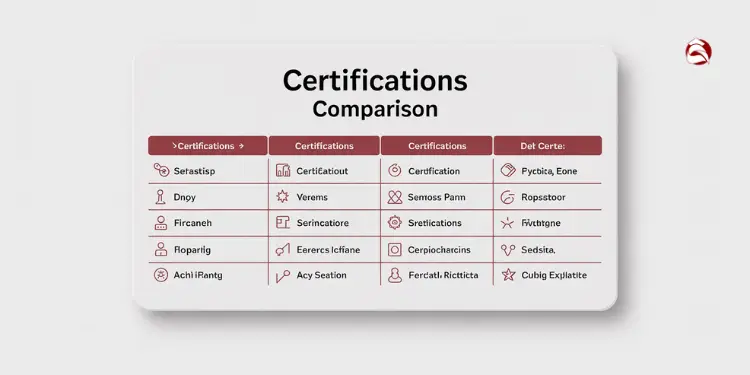
Deloitte’s 2019 Global Blockchain Survey reports that 83 % of 1,386 executives already see compelling blockchain use-cases—evidence that adoption is shifting from experimentation to operational scale across industries. Ref.: “Deloitte. (2019). Deloitte’s 2019 Global Blockchain Survey. Deloitte Insights.” [!]
Blockchain training is now focusing on being green. Certifications in energy-saving blockchain methods are important because companies want to be eco-friendly.
More companies want to use blockchain in their own ways. They need people who can make blockchain work with their old systems. This is a new skill that wasn’t part of old certifications.
If you’re new to blockchain, pick certifications that update often. What you learn today is good, but the details change fast.
The U.S. Bureau of Labor Statistics says blockchain security jobs are growing fast. This shows how important blockchain is for keeping information safe.
Before you choose your blockchain path, look at job ads for your dream job. The best blockchain pros keep learning and see certifications as just the start.












